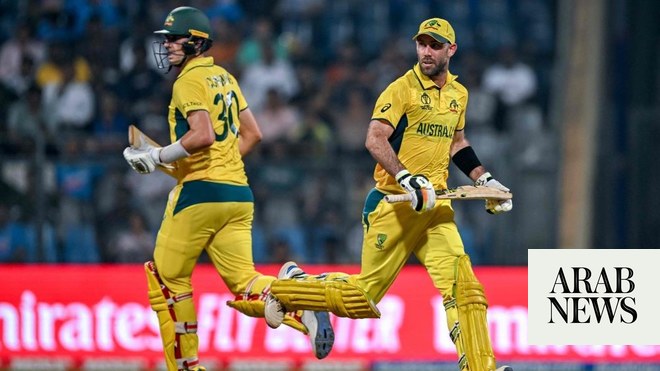
BANGALORE: Across more than 40 years and 11 tournaments, a total in excess of 300 has been chased down just eight times at a Cricket World Cup. Australia, India and the West Indies, who have won nine of those trophies, have never done it. Ireland did, thrice — against England and Netherlands in 2011, and versus the West Indies four years later.
The 329 for seven they made in Bangalore against England remains the competition’s record chase, and a reminder of the fearless cricket they played across three straight tournaments. Sadly, the Irish are one of a clutch of good teams that missed out on World Cup qualification with the tournament having shrunk to ten teams from 14.
But it’s not just the on-field heroics that will be missed. The Irish support, especially in Jamaica in 2007 when they tied with Zimbabwe and upset Pakistan, were a joyous bunch, a sea of green singing “The Fields of Athenry,” “Molly Malone” and much else while cheering their boys on. There was none of the surly entitlement you often get from fans of the established nations. This lot knew it was a privilege to be on the world stage, and they soaked up every second.
Barry Chambers was, until he stepped down last year, media manager of the Irish side for 17 years. He watched them ascend the ladder, and the loss to Afghanistan on Friday (March 23) that saw them miss out on what would have been a fourth World Cup in succession is a huge blow. “The exposure of nine games live on prime-time TV in a neighboring country would have been massive,” said Chambers, who now edits Cricket Europe. “We saw in 2007 just how much of a boost the game received with our displays in the West Indies.
“I feel the competition will be a poorer one without Ireland and the supporters. We would have taken thousands to each match. We filled Lord’s for an ODI last year and would have provided color and a carnival atmosphere.”
But at least Ireland, like Afghanistan, have Test status to look forward to, even if that’s no guarantee of a steady stream of matches against the big boys. “There’s a lot of things on the horizon (for Ireland),” said a disconsolate William Porterfield, their captain, after the loss to Afghanistan. “In a couple of weeks’ time, we’ll regroup and start preparing for the Test match (against Pakistan). And we’ve got a few other fixtures over the summer. To some extent, we’re lucky. We’ve managed to get where we are. I feel sorry for Scotland, how it ended for them. For them to progress, it’s going to be harder.”
Undone by two awful umpiring decisions, rain and the vagaries of the Duckworth-Lewis-Stern method, Scotland, who beat Afghanistan convincingly in the group phase, are left to contemplate an uncertain future. Roddy Smith, Cricket Scotland’s chief executive between 2004 and 2014, spoke for most Associates when he wrote in The Scotsman: “Ever since Ireland and Bangladesh upset the natural cricketing hierarchy at the 2007 World Cup in the West Indies, the thought of India having limited games at a World Cup could not be countenanced. Although undoubtedly a commercially sound rationale [at least nine India games in the new format], it directly negates the concept that the world’s second largest sport is actually growing.”
Porterfield was far more blunt. “Every 208 weeks, you’ve got a six-week competition so two or three big teams can play nine games on TV, so that the ICC can cash in with a big cheque,” he said. “And a lot of teams will leave here with nothing in their pocket. Scotland have come so close and yet so far themselves, but what have they got to look forward to for the next few years?”
What indeed? Even the teams that lost in the first round of the football World Cup in Brazil (2014) took home $8 million apiece, in addition to funds given to them to prepare for the event. Such riches are far beyond the imagination of Associate cricket nations, despite the ICC signing an eight-year broadcast deal worth $2 billion.
If you consider the past two years, the win-loss records for Sri Lanka (14-33) and Bangladesh (10-15) are worse than Ireland’s (15-19). They made it because of a ranking system that’s stacked against the smaller nations that hardly get any games. That they, and other entrenched powers, didn’t have to deal with the immediate pressures of a qualifying tournament tells you a lot about how rotten the system is, and how badly it needs an overhaul.
“I feel the standard of the countries now ranked nine to 16 has never been stronger,” said Chambers. “We’re paying for the sins of years gone by when perhaps there were serious mismatches. I’d like India to show strength and leadership and revise the tournament format for 2023. It’s within their power. Put the World back into the World Cup and let’s not have another glorified Champions Trophy.”












